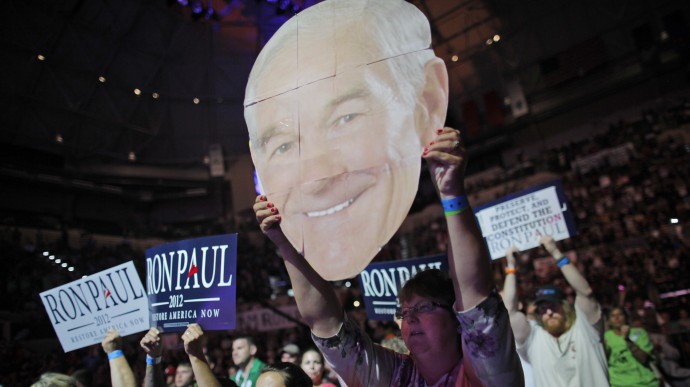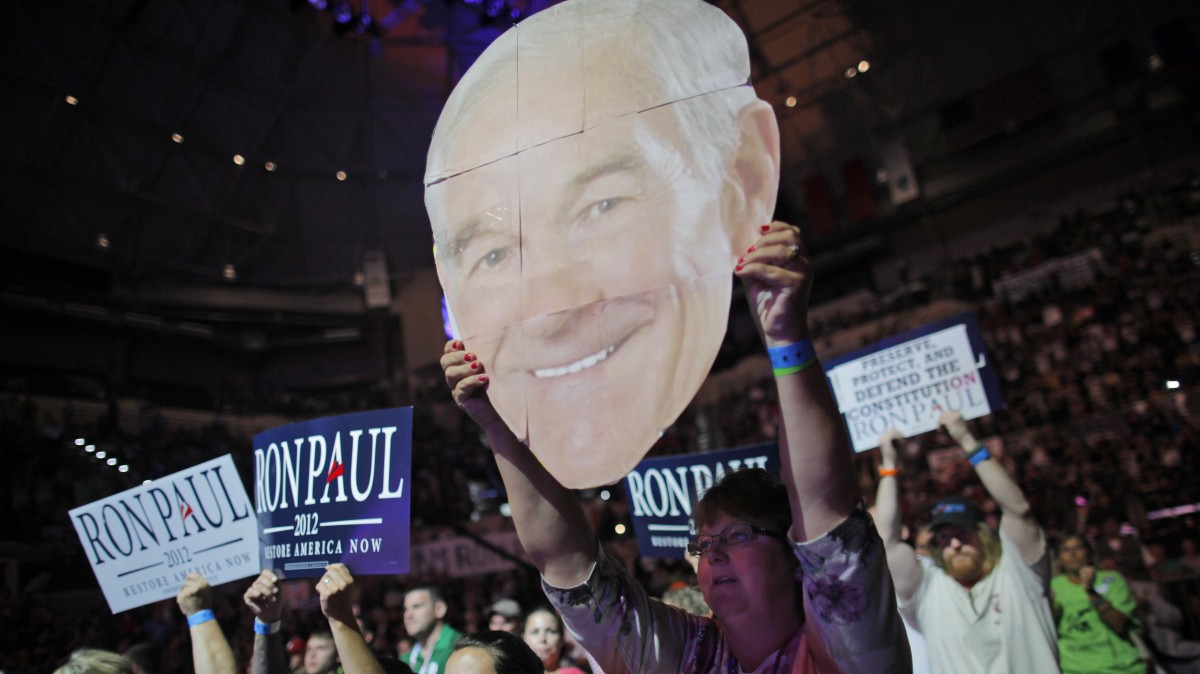
(MintPress) — In an attempt to prevent delegates supporting Ron Paul (R-Texas) from entering the upcoming Republican National Convention (RNC), the Republican National Committee is attempted to change longstanding delegate rules before the start of the convention on Monday.
Paul, a long-time advocate of libertarian ideals, has sought greater inclusion for his constituency in the Republican Party throughout his nearly 24-year career as a congressman. In a farewell speech before 7,000 fervent supporters at the University of Southern Florida, Paul lambasted the party establishment and the RNC in particular for “bending the rules, breaking the rules and rewriting the rules.”
A farewell and a parting shot
In his typical uncompromising style, Paul took the opportunity to criticise certain policy positions within his party while also thanking his constituency for its long running support.
During his speech Paul spoke on a range of issues, offering a critique of monetary policy and the Federal Reserve. He spoke at length about personal liberty as well, saying, “When it returns, once again you’ll be able to drink raw milk. You’ll be able to make a rope out of hemp. You’ll be able to feel secure in your house because the federal government will not be able to spy on you.”
In an unexpected move, the congressman took the chance to defend WikiLeaks founder Julian Assange. The Australian activist has been living inside the Ecuadorian Embassy in London after being granted political asylum earlier this month.
Paul defended Assange saying, “I’m afraid that if we took a poll across the country and said ‘Should we try Assange for treason?’ that most Americans would say ‘Oh yes he’s a bad guy, he’s telling us all these secrets.’ But guess what, he’s an Australian citizen.”
While Paul covered a range of economic and political issues in his one-hour speech, perhaps his biggest and most immediate qualm was with the RNC attempting to change the rules on delegates in a last minute move designed to undermine Paul and his supporters.
Mitt Romney had offered to let Ron Paul speak at the convention only if he submitted his speech ahead of the event for approval. Paul declined, but a tribute video will be played to celebrate the career of the embattled congressman.
Changing delegate plurality
Although there are several delegates supporting Rick Santorum (R-Pa.), Newt Gingrich (R-Ga.) and others, only the Ron Paul delegates would have a chance to present their nomination from the RNC floor because of the “five state rule.” Under this rule, a candidate must have a plurality of delegates from five states in order to be nominated at the convention.
Paul has met those requirements by maintaining a plurality of delegate support in Iowa, Maine, Minnesota, Nevada and Virginia. Paul also had a majority of delegates in Oregon and Louisiana, in addition to 17 delegates from Massachusetts.
In response to his continued delegate support, the RNC has attempted to strip Paul delegates of their voting privileges, according to a recent report, “RNC Pulling Out all Stops to Keep Ron Paul’s Name Out of Nomination.” The RNC even went so far as to try to change the five state rule, requiring instead that a candidate maintain a plurality in at least 10 states.
The proposed change failed by one vote, but delegates are now required to indicate who they plan to vote for at least one hour in advance. Many of the delegates previously stripped of their credentials will now be seated at the convention. However, the RNC committee on contests still insists on complete invalidation of the entire Maine delegation.
Just five of Maine’s 48 delegates and alternates will be officially allowed into the convention. However, the remaining delegates vow to make the trip to Tampa to continue the fight to be seated.
Ben Swann, a reporter covering the issue, commented, saying, “But the bigger issue here, again: Why have rules if you don’t follow them? Why does the RNC even have a five state rule if the candidate gets five states and they want to change it to a 10 state rule? Then when that doesn’t work, they just remove delegates, an entire states worth of delegates and replace them with people who will do what they say.”
Almost 20 percent of the delegates attending the Republican National Convention do not support Romney. This censorship, critics say, is an attempt by the Republican National Committee to present unified party support for Romney and his bid for the presidency.
The opposition to Paul by traditionally conservative members is part of a long, tenuous history between conservatives and libertarians.
Libertarian current
Some would go so far as to say that libertarian Ron Paul supporters comprise a “political fifth column,” in what is otherwise a relatively homogenous political party.
During his career representing the 14th Congressional district in Texas, Paul has held consistent libertarian views, often in opposition to the majority conservative current in the Republican Party. Among the policies that run counter to the majority within his party is a belief in reducing the size of the military budget, ending the Federal Reserve and ending the war on drugs.
His legacy will be likely be carried on by his son, Rand Paul (R-Ky.) who called for an audit of the Pentagon and reductions to the military budget earlier this week.
It will be a tall order to fill as many believe that Ron Paul was single-handedly responsible for energizing the libertarian base while attracting many new voters to the ideas of libertarianism.
David Boaz of the libertarian research organization in Washington, commented on Paul’s legacy saying, “We used to say most people found libertarianism by reading Ayn Rand. In the last five years, most people have found libertarianism by listening to Ron Paul.”


